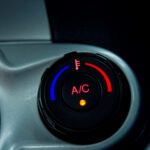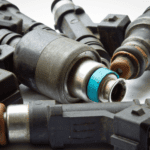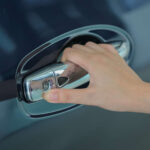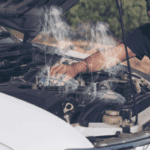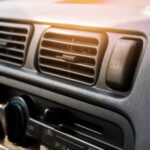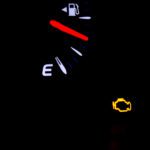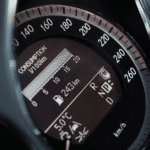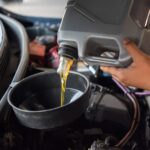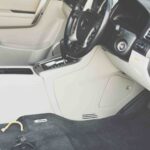Have you ever experienced your ABS light coming on when driving in the rain? It’s a frustrating issue because the chances you’ll skid are much higher when driving in the rain, so the ABS is needed. In this article, we’ll explore why your ABS light might keep coming on in the rain and if there is even an issue.
A Brief Intro to How the Abs Works
The Anti-lock Braking System gives drivers complete control of a vehicle when in a skid from hard braking—allowing you to maneuver a car to avoid other vehicles or debris when needing to stop quickly. When in a skid without ABS, a car is uncontrollable and will not stop as quick.
The ABS detects a wheel or wheels locked in a skid; the sensor then sends a signal to release brake pressure giving you back control, breaking the skid, and then reapplying brake pressure to slow the car. This cycle happens between 5 and 10 times per second. One thing to note is that when ABS operates, it will flash on the dashboard. But if the light is permanently illuminated, it will not work.
Reasons why the ABS light comes on when its raining
There is a problem with ABS light coming on in the rain only, and that is because it is one of the times you will use it regularly. When driving on a dry, sunny day, you are less likely to need it. It may be entirely coincidental that the light is on once it’s raining, and you probably have a temperamental fault with a component of the ABS. However, if that is not the case, there are reasons why the ABS light comes on when it’s raining.
Aquaplaning
Aquaplaning across standing water and braking simultaneously can fool the ABS into thinking there is an issue. Because when you are aquaplaning and braking, the wheel will suddenly lock up. The ABS will kick in to release and reapply brake pressure using the brake fluid as quickly as possible. But the wheel will not continue turning because you are aquaplaning, so the ABS will believe there is a fault and throw the light on the dash. It will effectively think it is broken when, in fact, it’s not.
What should happen is a few miles down the road, the ABS should recalibrate, and the light should extinguish itself. However, if it doesn’t, there may be an issue with a component, or the system will need to be force reset with an OBD2 diagnostic tool.
Faulty wheel speed sensor
The wheel speed sensors work by detecting the rotational speed of the wheels and communicating this back to the ECU to be interpreted. This information is used by the TCS, ABS and ESC.
A faulty wheel speed sensor can happen at any time and is usually damaged by debris or the electrical internals fail. This can occur in the dry or rain. However, suppose this is persistently throwing the light on in the rain. In that case, the sensor casing is split, and moisture is getting into the sensor, stopping it from working or operating when it is not needed, which will put the light on.
Abs sensor wire short circuit
An ABS sensor is located at each car corner and connected to ECU through wires. The wires are open to the elements and easily damaged from debris and chafing. If the sensor wires’ protective casing is split and wires are exposed on a dry day, this probably won’t cause any issues unless the cables come into contact with anything metal attached to the car. However, when it’s raining, rainwater can get to the wires within a few minutes of driving and cause a short circuit.
A short circuit will immediately cause the ABS light to come on because it is not operational. Usually, given an hour or so of not driving the car and it’s no longer raining, the wires will dry out, and the light will switch off.
I’ve seen this a few times, and the easiest way to solve the problem is to find the split wire and cover it in waterproof electricians’ tape, wrapping it around the split wires a few times or replacing the sensor. Finding the split wire isn’t always straightforward. But there is a simple way if you can access an OBD tool when it rains. Hook the car up to the diagnostic tool and drive to check which sensor is not giving a signal; you will then know where to start looking for the split wire to fix or replace.
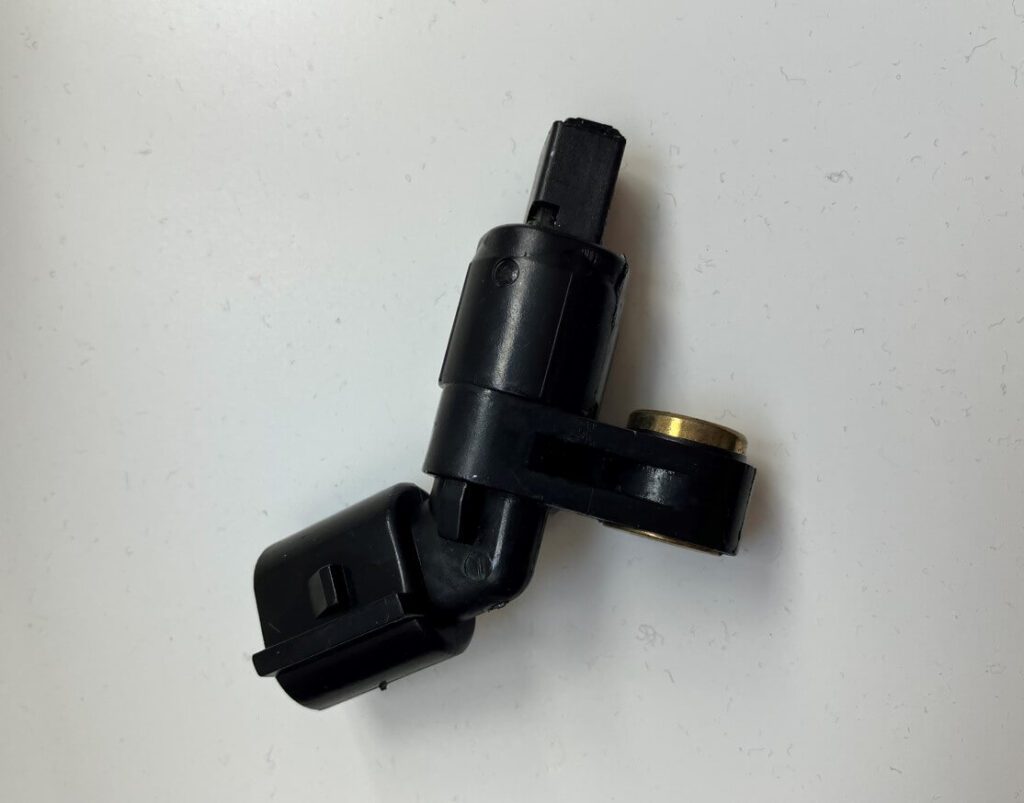
Does rain effect ABS?
Because of what the ABS does, it operates more in rainy and damp road conditions. It is designed to work in all weather conditions, and rain should not affect the ABS.
However, as indicated above, faulty sensors, water causing a short, and aquaplaning on puddles when braking in the rain can cause the ABS to think there is an issue.
Is it safe to drive with ABS light on?
When the A.B.S light is on, that means it is not operating. It is safe to drive, provided you don’t need to use it, and how could you know that?
It’s best to avoid driving, especially in damp roads/rainy conditions, and only drive if you have to. It’s not for us to say it’s completely unsafe because the brakes will work, and older vehicles didn’t have modern ABS; it wasn’t invented until the 1970s.
The problem with the ABS not in operation is if you need to slam the brakes on when traveling at speed and avoid something in the road, the wheels will skid, and you won’t have complete control of the car. The only way to gain control of the vehicle is to pump the brake pedal fast so that you are acting like the ABS. Unless you’re an F1 driver with cat-like reflexes, this happens so quickly that you will probably have skid into whatever you were trying to avoid.
Final thoughts
The most common cause of the ABS light coming on in the rain only is a short from water getting into wiring or a sensor. Usually, once the rain has cleared and the water dries, the ABS will work as usual, and the light will turn itself off after a mile or two of driving. Because there is an issue, you should fix the problem. Driving without the ABS working, regardless of the weather conditions, is risky as you do not know when you will face an emergency and need the ABS.
